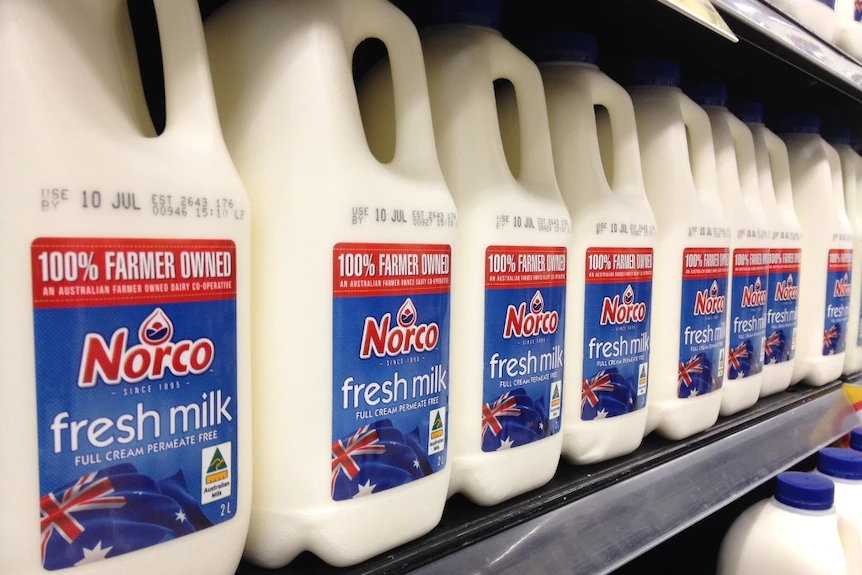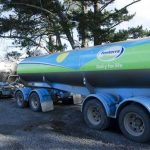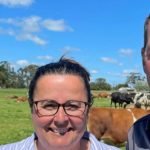
Key points:
Australia’s largest dairy co-operative posts record $12.7 million profit for 2021-21 financial year
Norco’s branded milk sales grew 22.4 per cent, and now accounts for $189.4m of the total $658m in revenue
Supplier says despite record profit farmer returns were down for the year and prices need to be lifted
“All of our divisions have performed better than last year, and certainly significantly better than the year before,” said CEO Michael Hampson.
It delivered a $1.2 million profit in 2018-19 from total revenue of $603 million that year.
While the 2020-21 revenue is up on two years ago at $658 million, it is down $25 million on the previous year due to reductions in commodity prices and volumes in Norco’s grain trading and feed mill businesses.
“In the drought, there was a lot of purchasing of fodder, formulated feeds and grain, and at historically record prices, so we have less of that this year,” he said.
“But what we have done is increased our sales mix considerably to higher value-added products, and that’s what’s assisted with our increased profit for the year, and reducing our net debt by $16.5 million down to $12.2 million.”
The growth in consumer loyalty saw branded milk sales grow 22.4 per cent during the year and now accounts for $189.4 million of total revenue.
“They continue to buy a lot of Norco branded milk, which is certainly what assists our farmers moving forward and provides them the real confidence to invest in their facilities,” he said.
Record profit but farmer returns down
Norco supplier Graham Forbes said while the cooperative delivered a bigger profit, the returns to farmers have been reduced from the 2019-20 year.
“That price is back about a cent a litre on last year, and Norco paid two to three cents a litre lower during through the autumn/winter period, also our dividend hasn’t increased, it’s about the same amount, and supplier patronage has dropped off as well,” he said.
However, his major concern about the milk price going forward is inflation.
“We’re seeing fertiliser prices doubling, chemical prices doing something similar, huge increases in fuel prices and wages,” he said.
“So, we’re seeing very much an inflationary period, and we haven’t seen a rise in the basic milk price for two years when Woolworths lifted the price by 10 cents and another 10 cents, so a 20 cent rise.”
Mr Forbes said he did not believe the issues in the marketplace had been solved and that it was time Woolworths – which sources milk from Norco for its homebrand product — lifted the price again by another 10 cents.
“If we don’t get a price rise, inflation’s really going to hurt farmers, we’re going to see interest rates going up, so the co-operative really has to be looking at getting some price rises coming through,” he said.
Norco predicts record price next year
While the average base milk price for suppliers dropped from 70.63 cents per litre to 70.01 and the total average member returns decreased from 71.60 to 70.83, Mr Hampson said Norco should deliver a record price next year.
“We’ve already seen us reinvest nearly $5 million of that profit into future milk price for the year for our members, increasing our milk price twice, which is fantastic for our farmers,” he said.
He said the price has already lifted by around 2.5 cents a litre on where it was last year, and depending on the components – the level of fat and protein in the milk — Norco will report a record price for the 2021-22 year.
“We’d be seeing a price of around 72.5 to 73.5 cents per litre on average, but some farmers will do much better than that, and some farmers might be a little bit behind depending on their farming methods and components of the milk that they send to us,” he said.

























